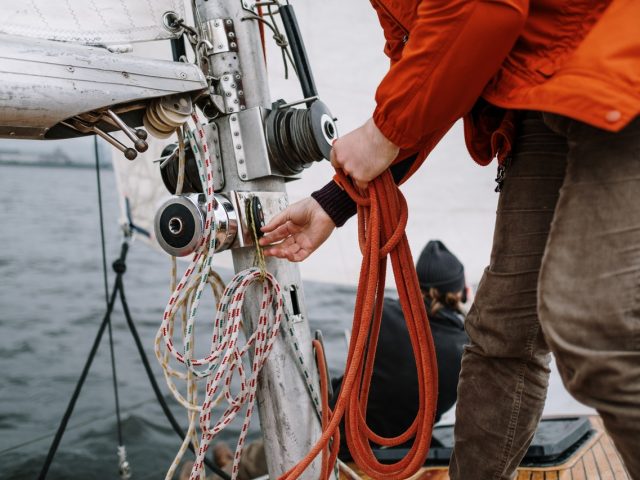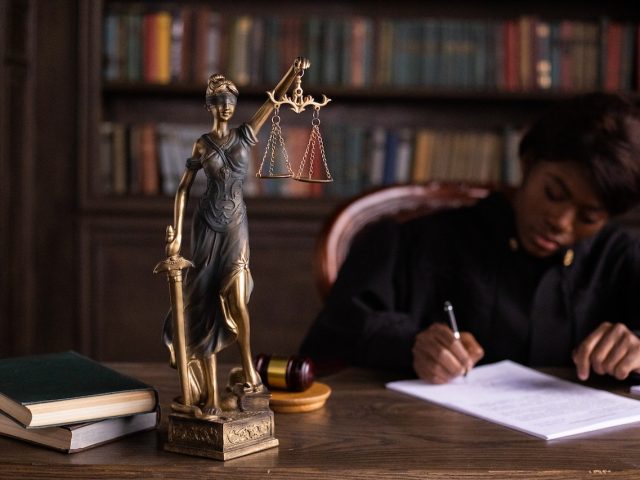
Ad monetization is one of the best methods a digital content creator can apply to generate income online. However, before you jump into it, it’s best to see all the requirements your website or mobile app has to meet in order to use the chosen solution. We’re here to provide all the necessary information and support – after reading our article, you will find out why are copyright and fair use laws important on your road to monetization success!
Intellectual property infringement
Intellectual property infringement happens when someone violates, among others, the copyright, trademark, or patent rights. Publishers should especially be cautious with copyright laws – breaking them can result in content removal and even legal issues! To avoid that, you should familiarize yourself with terms such as:
- Copyright permission – a kind of agreement between two parties. The owner of copyrights can let you use their material, usually after paying some fee or after fulfilling some conditions;
- Public domain – refers to materials that you can use without any consequences because, among other things, their copyrights might be expired or inapplicable;
- Fair use (in some countries – fair dealing) – is your chance to use copyrighted material without permission. This doctrine is common in many countries, including the USA, Great Britain, Poland, South Africa, India, South Korea, Australia, and the Philippines. Often, you are allowed to use such materials for teaching, news reporting, and quotations.

Google copyright policy for publishers
Monetizing other author’s copyrighted content or selling fake goods is strictly prohibited by Google. Moreover, the company forbids placing links leading to pages that violate copyright laws. Remember that as a digital publisher, you are fully responsible for your content. However, it’s worth adding that Google responds to all reports of copyright issues. In case your content is removed due to copyright infringement, but you disagree with their decision, you can submit a “counter notification“.
If you get permission from the copyright owner or use content available in the public domain or within fair use limits, then you have nothing to worry about! For instance, your website can feature works of amateur creators looking to gain exposure, fame, and compensation by publishing their creations on an already-renowned site – such authors won’t report a copyright violation.
Unfortunately, not all publishers can provide evidence of law-compliant actions. When it comes to copyrights, there are some “gray areas” where seemingly harmless behavior can lead to some violation issues – examples of such can be websites streaming music or sports matches. In both cases, there might be concerns regarding copyright, as the publishers aren’t able to provide permissions from the original content owners.
Additionally, it’s essential to be cautious about the source of the ads you display to your audience. There is no need to worry if the ads are delivered by certified and proven partners (like Google Certified Publishing Partners). However, if you acquire advertisements from other sources, it’s crucial to be careful and ensure that the ads’ content does not violate applicable policies.
How long is work protected by copyright laws?
European Union laws precisely state how long a piece of work is protected – it’s 70 years after the passing of the author (or the last living author in the case of a collective work). When it comes to, for example, the USA, the thing is a little bit more complicated. Something created after 1st January 1978 (or precisely on that day) is protected under the same circumstances as in the case of EU countries. For works done before that period, different rules apply – the ones that were already protected before the beginning of 1978 are nowadays protected for up to 95 years (it means that in 2024, all works published in the USA before 1st January 1929 are in the public domain). Additionally, when it comes to creations of anonymous authors or made for hire, the duration of copyrights is 95 years from the work’s publication or 120 years from its creation.
All in all, if you’re not sure how the law works in your geographic area, it’s better to verify it on the government’s websites. The rule is, if what you wish to publish is relatively recent – it’s safer to treat it like a work protected by copyrights.
Plagiarism and SEO
Using copied or plagiarized content can not only be dangerous from the violation of copyright point of view, but it can also harm the website’s SEO and its ranking in search engine results. If you wish to use citations, it’s crucial to do that properly and with moderation to avoid being flagged as a plagiarist by search engine algorithms. To prevent such issues, you can utilize plagiarism SEO tools to check how the originality of your content is perceived (some of them are available for free, like Dupli Checker). Additionally, you should pay particular attention to what’s created by artificial intelligence – although AI tools for content creation can be really useful, they should be used cautiously and always verified before publication, as similar content may already exist online.
Can we collaborate?
As a company that values reliable monetization that brings excellent profits to the publishers while prioritizing the safety and comfort of internet users, we cannot assist in monetizing websites and applications that infringe copyright laws. If you’d like us to help you generate great ad revenue, ensure your content does not violate any laws and meets additional requirements for joining the optAd360 network. If it’s all right, feel free to fill out our registration form and start earning more!

